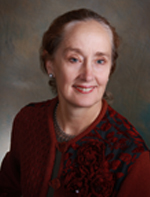UCSF Commentary: Cervical Cancer Expert Questions Role of HPV Testing in Screening
Screening for cervical cancer has become more complex in the last few years, leaving physicians and patients in a quandary: do they test with the traditional Pap smear or do they add a test for human papilloma virus?
Some national guidelines recommend that the combined Pap-plus-HPV “cotest” should now be the preferred strategy over the Pap test alone.

Karen Smith-McCune, MD, PhD
Karen Smith-McCune, MD, PhD, a UCSF gynecologist and obstetrician, challenges that recommendation in a Viewpoint article published online on May 5, 2014 in JAMA Internal Medicine.
In the commentary, Smith-McCune raises concerns that the evidence behind the recommendation was rated as weak by the guideline committee, indicating that the overall balance of benefits and harms is still not known.
“Doctors and their patients who choose Pap-plus-HPV screening should be aware that this method can lead to increased surveillance for cervical abnormalities and related anxiety, confusion and costs,” said Smith-McCune, a professor in the UCSF Department of Obstetrics, Gynecology and Reproductive Medicine. She is also director of the Dysplasia Clinic at UCSF and the John Kerner Endowed Professor in Gynecologic Oncology.
“One downstream effect of cotesting is uncertainty and anxiety among women who test positive for HPV but have a low risk of cancer,” said Smith-McCune.
Many women are now showing normal Pap tests but positive HPV results – this rate reaches as high as 11 percent among women 30 to 34 years old in the United States, said Smith-McCune.
The decades-old Pap test has been “remarkably successful” at reducing the overall death rate from cervical cancer, said Smith-McCune. Then, with the discovery that HPV played a key role in nearly all cases of cervical cancer, molecular tests were developed to measure the presence of HPV types associated with cancer. As a result, there was a push to incorporate HPV testing into guidelines for cervical cancer screening.
HPV infection is common in sexually active women, but most infections clear up without treatment in a short time and are not associated with pre-cancers.
In 2012, guidelines for cervical cancer screening were updated. The American Cancer Society, the American Society of Colposcopy and Cervical Pathology, and the American Society of Clinical Pathology, recommended that Pap-plus-HPV cotesting every five years is preferred for screening, but Pap testing every three years is also acceptable.
Smith-McCune also pointed out that approximately 25 percent of the committee members of the group that “preferred” HPV testing reported financial conflicts of interests with companies that make HPV tests.
These conflicts did not exist among the U.S. Preventive Services Task Force, which also issued guidelines in 2012 recommending Pap-plus-HPV testing but did not give it the “preferred” designation over the Pap alone.
“The current state of knowledge suggests that clinicians should not automatically adopt cotesting as the preferred screening strategy for cervical cancer and should consider the individual patient’s values and perspectives when choosing a screening method,” wrote Smith-McCune.
Smith-McCune is the founding chair of the Clinical and Scientific Advisory Board and holds stock options in OncoHealth Inc., which is developing diagnostic tests for cervical cancer and other cancers associated with HPV.
She is a co-investigator for a National Cancer Institute study on cervical epithelium (grant RO1 CA167421) and an NCI study on cervical cancer screening options in the U.S. (grant R01 CA169093).
UCSF is a leading university dedicated to promoting health worldwide through advanced biomedical research, graduate-level education in the life sciences and health professions, and excellence in patient care. It includes top-ranked graduate schools of dentistry, medicine, nursing and pharmacy, a graduate division with nationally renowned programs in basic biomedical, translational and population sciences, as well as a preeminent biomedical research enterprise and two top-ranked hospitals, UCSF Medical Center and UCSF Benioff Children’s Hospital San Francisco.